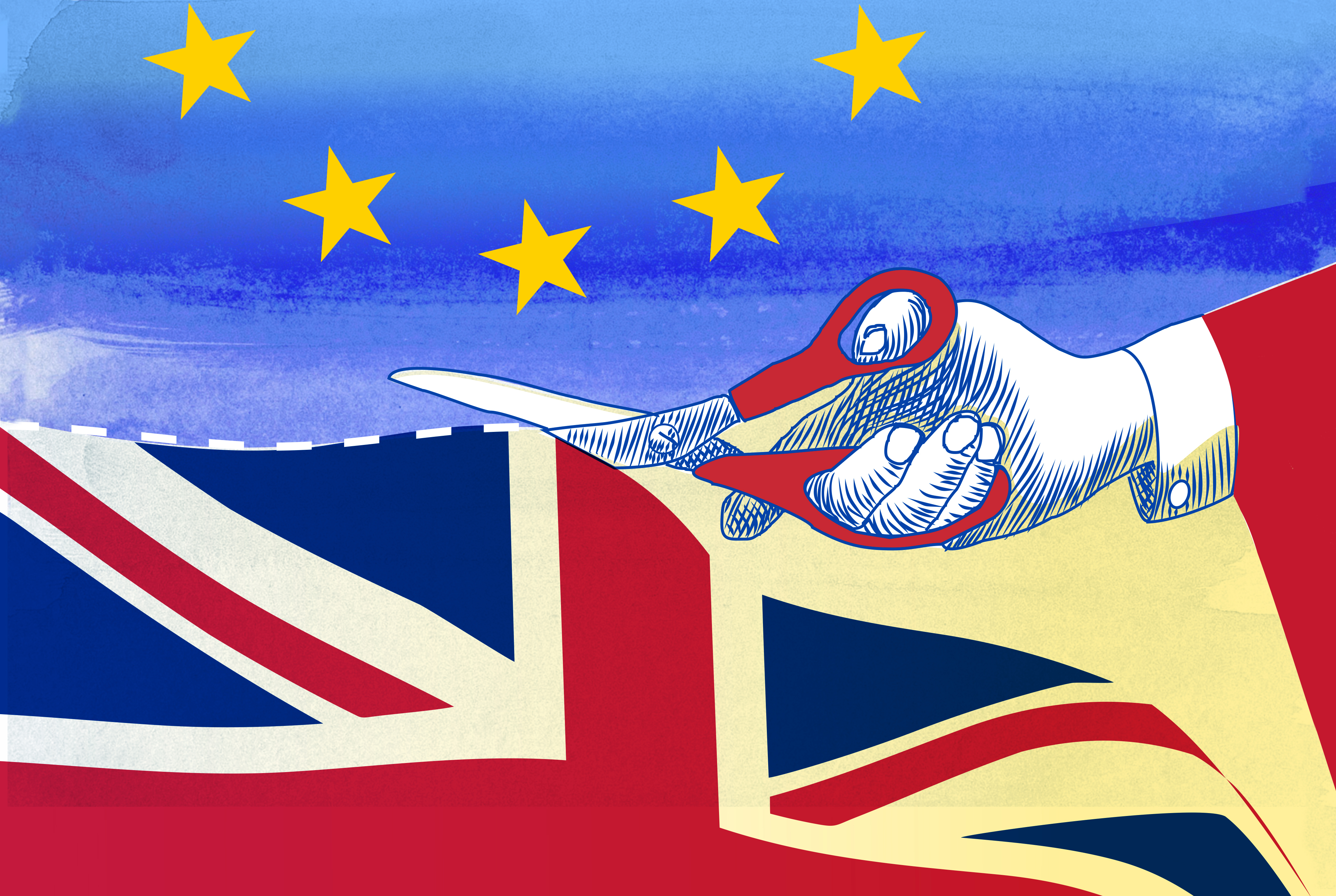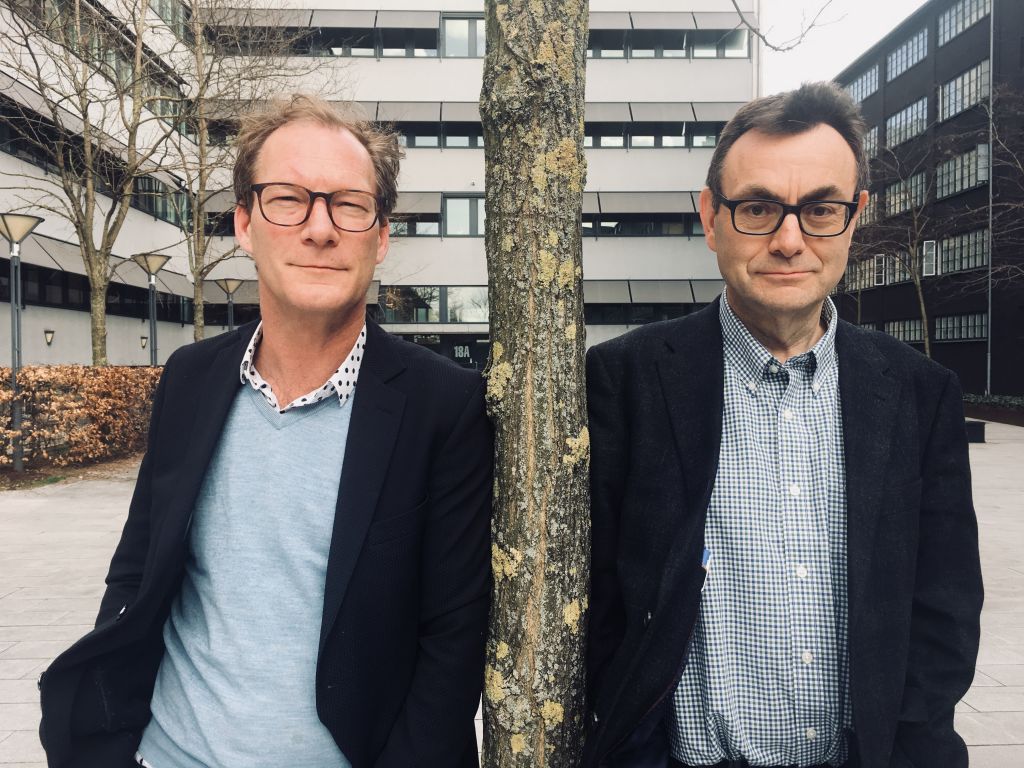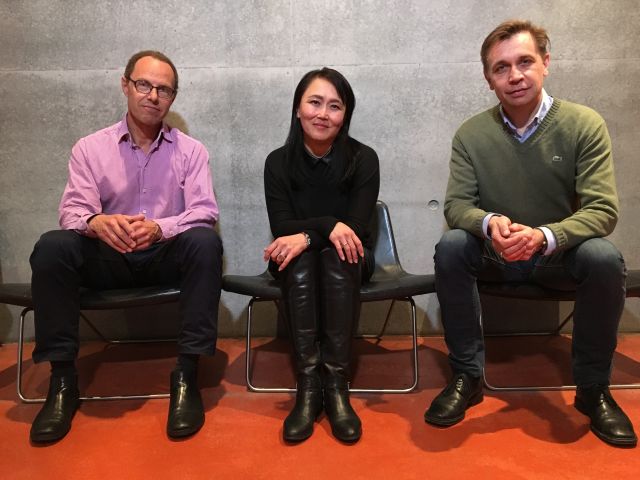Brexit: Research collaborations are facing an uncertain fate

What impact will Brexit have on the relationship to the universities in the EU? (Ilustration: Shutterstock)
The uncertainties about the outcome of Brexit have left the Danish universities and their researchers in a watershed. Per Holten-Andersen, the President of CBS, points out that Brexit has the potential to harm the quality of joint research, and British researchers at CBS are nervous about their legal rights in the near future.
In the beginning of April, a delegation of British university presidents came to the British Embassy in Copenhagen to meet with their Danish colleagues, including Per Holten-Andersen, the president of CBS, to discuss a contingency plan for what comes after Brexit.
In about a year’s time, the UK will – maybe – have left the EU. And that is not only raising questions about trade and legal rights, but also how it will affect future research collaborations between the UK and universities on the mainland, as a lot of that research is funded by the EU.
“For Denmark, and thereby also CBS, withdrawal of British universities from the continuous European collaboration would be a break in the very long and culturally strong collaborative tradition between the two countries. In the long run, it would be harmful to the scientific quality of joint research,” says Per Holten-Andersen.

The Associate Professors, Duncan Wigan and Edward Ashbee from the Department of Business and Politics at CBS, are both British and concerned about their future legal rights when the UK leaves the EU. (Photo: Anne M. Lykkegaard)
Can you find a German partner instead of a British one?
Denmark has a strong collaborative tradition with the UK. Half (462) of Denmark’s 967 EU funded Horizon 2020 projects had British partners in it, states a working paper published by the Centre for Higher Education Futures from Aarhus University and Utrecht University in the beginning of February.
In the working paper, researchers from nine EU member states – including Denmark – have conducted interviews in order to investigate the potential impact of Brexit on the UK’s universities and their relationships with European universities.
The title of the chapter involving Denmark – ‘Let’s see the results of the negotiations, then find a way to carry on cooperating’ – reflects the general opinion among the interviewed, which covers members of the Danish government and academicians of various levels. However, some are still concerned about the future of research collaborations, as the two examples below show.
“Some universities were informally advising academics to avoid British partners and see if they could find a German partner with the same profile.” (p.43)
“A university research leader said that several academics had been concerned about including UK partners in applications for new projects, and he could see how uncertainty over UK’s future EU-funding status affected the behavior of the researchers at his faculty.” (p.43)
It’s all or nothing
The funding that the UK is receiving from EU research programs is of great importance. According to the Danish online magazine, Altinget, the top four universities to receive the most financial support through the EU’s research program, Horizon 2020, are British. In some academic disciplines in the UK, up to a third of all research funding is from European programs, states the working paper from Aarhus and Utrecht University.
So far, there are a few possible outcomes for the UK regarding the continuation of research collaborations with the EU member states.
- They continue as a full member of the next Horizon program.
- They become an associate member of the research program just as Norway and Israel. However, if this is the outcome, they will have no influence over the rules for distributing the funds.
- The UK is left out from all of the EU research and innovation programs and will have to fund everything themselves.
At the meeting which was held in the British Embassy, both the British and the Danish universities’ presidents agreed that they want to continue collaborating in terms of research and education. However, it is going to be costly if the UK cannot be a part of the EU research programs.
It doesn’t make sense to make contingency plans and act too hasty
Søren Hvidkjær, dean of research
“At the meeting, it became evident that there is a huge interest from the British universities in continuing the collaboration on research and education with the European, and especially the Nordic, universities. Likewise, this is what we, as Danish universities, wish for as well. However, it will only be possible if the UK funds the collaboration at the same level as before Brexit,” points out Per Holten-Andersen.
No matter the outcome, Søren Hvidkjær, the dean of research at CBS, is optimistic about the future of the collaboration between British and Danish universities – including CBS.
“There are reports from the UK that show a growth in Horizon 2020 funds received by researchers in the UK. That sends a signal that the research collaboration can and must continue after Brexit. At CBS, we are in line with that,” he says.
Take it easy
Even though some university leaders and academics are expressing their concerns about future collaborations with the Brits, Søren Hvidkjær advises researchers from CBS to collaborate with the best and most relevant people – whether they be Brits or not.
“Our researchers should continue collaborating with the best and most relevant people. We are sure that this opinion is shared in the UK, and they want to secure long-term collaborations. The Brits, however, have an important role to play in providing good conditions for their researchers, and in making sure that they are not isolated,” he says and continues:
“At this point, there are way too many uncertainties and questions about the phasing out of the UK’s membership of the EU at the moment. It doesn’t make sense to make contingency plans and act too hasty.”
On the other hand, the uncertainty which has spread among researchers in the UK, might be of value to CBS, points out Søren Hvidkjær.
“The silver lining for CBS is that many non-Brits in the UK appear to be seeking to come back to the EU. CBS is critically dependent on being able to attract the most talented researchers, and the Brexit is, however lamentable the background, a recruiting potential that CBS should pursue.”



































































































































Comments